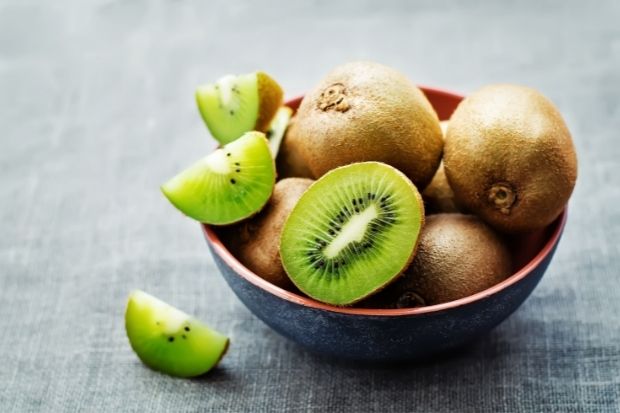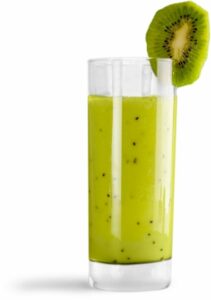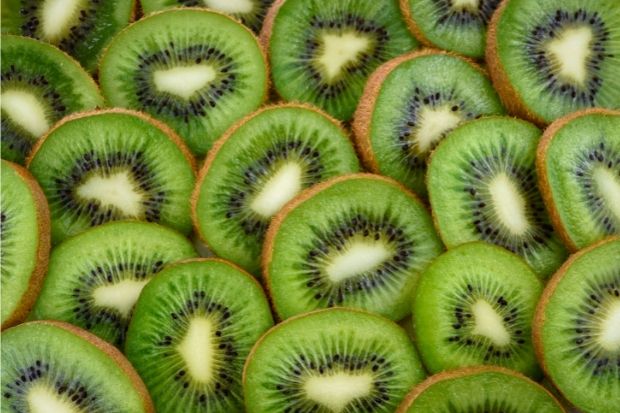Kiwis are delicious fruits, thanks to their sweet, tart, and sometimes sour taste. Kiwis are sold all over the world because they are both tasty and nutritious, but their unique appearance and taste often cause people to wonder exactly where kiwi belongs on the food chain. Instead of looking at the genus, family, and other biological traits of a kiwi, people are simply curious if kiwis are indeed citrus fruit.

Is Kiwi a Citrus Fruit?
Simply put, kiwis are not citrus fruits, even though the two types of fruit may be similar. One of the most interesting aspects of kiwi is its vitamin C content, which is extremely high. In fact, kiwi’s vitamin C content is one of the reasons why so many people believe that kiwi belongs in the citrus fruit family. The kiwi fruit has more of this vitamin than any of the citrus fruits, including oranges and grapefruits. The typical kiwi has around 92 mg of vitamin C, which ranks above fruits such as limes, tangerines and mandarins, among others.
What Kind of Fruit Is Kiwi?
Unlike citrus fruits, kiwis are grown on a woody vine and belong to the Actinidia genus, which is part of the Actinidiaceae family. Kiwis are also called kiwifruit or Chinese gooseberry, and they grow in temperate climates. Kiwis are roughly half the size of a hen’s egg and aren’t usually perfectly round. Its dull-brown skin is hairy, but the flesh is bright green and contains small edible seeds that are black in color.
There are roughly 94 species of kiwi, and most are cultivated for their fruit. Kiwi has a very soft texture and is similar in texture to a mix of banana, strawberry, and pineapple. The fruit gets its name from the kiwi bird of New Zealand, which has feathers that look a lot like the fruit. Some people are turned off by the hairy exterior but will ultimately love this fruit once they cut it open and give it a try. It has a taste unlike most other fruits.
Specifically, kiwi is classified as a true berry because it is fleshy, has lots of tiny seeds and no stone, and comes from a single ovary. It may not look or taste like other berries, but from a botanical point of view this is what they are. The seeds are on the inside of the kiwi, just like they are with other berries that include tomatoes, watermelons, bananas, avocados, and pumpkins.

How Much Vitamin C Does Kiwi Have?
To be exact, a 100 g kiwi has 92.7 mg of vitamin C. As a comparison, here are the vitamin C contents of other fruits of the same size:
- Papaya: 60.9 mg
- Persimmon: 66 mg
- Orange: 53.2 mg
- Lemon: 53 mg
- Pineapple: 47.8 mg
- Mango: 36.4 mg
- Grapefruit: 31.2 mg
- Lime: 29.1 mg
- Mandarin/tangerine: 26.7 mg
- Raspberry: 26.2 mg
Everyone needs vitamin C, in part because it is a water-soluble vitamin that doesn’t stay long in our bodies. If you want to increase your vitamin C intake, adding kiwis to your diet is an excellent option.
What Defines a Citrus Fruit?
All citrus fruits are derived from three ancient fruits, all of which belong to the Rutaceae family and the Citrus genus. Today, most of the citrus fruits we eat are either natural hybrids or man-made. In case you’re wondering what those three ancient fruits are, they are the citron, true mandarin, and the pomelo. Some of the most common hybrid citrus fruits include the sweet orange, clementine, kumquat, blood orange, and even the grapefruit.
There are a few things that all citrus fruits have in common. For instance, they all have a dimpled outer skin, contain natural citric oil, and have the same acid structure and content. They can also be very aromatic when they’re peeled. All of these things together make citrus fruits what they are today.
Conclusion
Kiwi is not a citrus fruit, but it still has a lot of the vitamins and minerals that citrus fruits have, as well as a sweet, yummy taste that most people love. Regardless of where it belongs, it is a nutritional fruit that you won’t regret adding to your diet.
